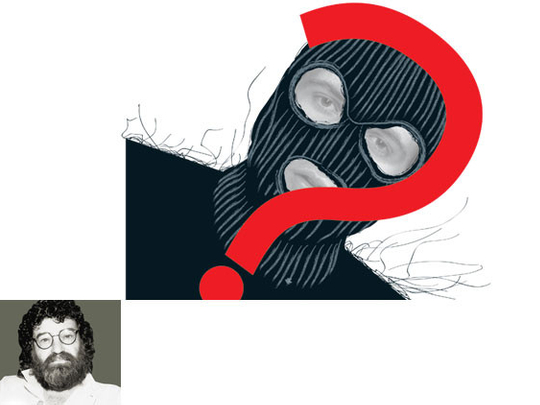
From the outset, Barack Hussain Obama was a conflicted chief executive: An anti-war candidate who morphed into a war president; a champion of transparency in office with a kill list; an American head of state committed to bringing about a rapprochement with the Muslim world who rained down death on it from above via CIA-directed drones; a progressive intellectual imbued with the strength of moral values, who was made to kiss the canvas when he sparred with Israel’s extremist Benjamin Netanyahu.
Was the president of the US reflecting on these contradictions, as much as on America’s seemingly endless “war on terror”, when he said recently: “We must define the nature and scope of this struggle or else it will define us”?
Well put, for it is about time we defined what terrorism is and who actually is a terrorist.
In a major and wide-ranging speech at National Defence University, Obama asserted that the US had reached the “crossroads” in its “war on terror”. Though not repudiating the controversial use of drones, he noted that “to say a military tactic is legal, or even effective, is not to say it is wise or moral in every instance”.
Extrajudicial killings by any other name is still an act of terrorism — state terrorism to be exact, but terrorism nevertheless, that is neither wise nor moral. When drones continue to rain down their Hellfire missiles on non-combat zones, in countries like Yemen, Pakistan and Somalia that are not at war with the US, killing dozens of civilians, then the president has not fulfilled the pledge he had made to American people when he took office five years ago — to bring America’s national security policies “fully in line with its founding values”.
Nor has he fulfilled his pledge to close down the US military detention centre at Guantanamo Bay, America’s version of the French penal colony Ile du Diable (Devil’s Island) off the coast of Guiana, which the French government had used between 1854 and 1953 for the internal exile of political prisoners. Like their counterparts at Guantanamo, those prisoners were out of sight, but not out of mind in the public debate about human rights.
It was thus not surprising that during his speech, as he brought up the issue of the 166 detainees still incarcerated there, Obama had a run-in with an anti-war heckler who interrupted him several times, imploring the president to close the facility as he had promised upon taking office.
What has passed largely unnoticed by those of us engaged in this debate is that no one has yet come up with a coherent definition of terrorism. What is terrorism? What is the nature of the war that the US has been conducting against it all these years? Does it have rules?
How do we distinguish between a terrorist and a desperate and deluded youngster espousing “Islamist” slogans? Is it not about time that we stopped calling any and every act of violence an “act of terror”? Does a terrorist have rights, say, the right to defend himself in court before he is executed by a drone strike or by slow death in a prison cell?
No one really knows what a terrorist is (an amorphous term bandied about long before 9/11) because name-calling in this case is unavoidably subjective. It is dependent on whether you sympathise with the cause of the victim or that of the perpetrator. Governments like those in Israel and more recently in Syria, often use the term to delegitimise their opponents and, conversely, legitimise their own use of terror, which they call “armed force”. Those in power define the exercise of power.
It is thus not so ironic that the term comes from the French word ‘terrorisme’ and originally referred to state terrorism as practised by the post-revolutionary government in France during the Reign of Terror. ‘Terrorisme’ itself comes from the Latin verb ‘terreo’, which means ‘I frighten’. With well over a hundred different definitions of the term knocking about today (including those you will find on the CIA and FBI web sites), to expect a universal agreement on what we mean by the term is a bridge too far.
Sadly, in popular US culture, terrorism is always associated with the ‘other’, mostly what Americans call “Islamists”. Consider this: In December last year, Adam Lanza, 20, who had hoarded a large arsenal of weapons at home, shot 20 children and six adults at Sydney Hook Elementary School in Newtown, Connecticut, before killing himself. He was dismissed as a demented individual. When in April this year, two brothers from Chechnya exploded pressure cooker bombs at the finish line of the Boston Marathon, killing three people and injuring 264, they were immediately called “terrorists”. The disparity in the labels derives from the fact that in one case, the perpetrator was American-born and in the other the perpetrators were foreign-born but Muslim.
Back to the activist who heckled the president about Guantanamo as he delivered his speech. “You are commander in chief”, she shouted. “You can close Guantanamo today. You can release those prisoners. It’s been 11 years. I love my country. I love the rule of law”.
“Let me finish”, the president pleaded with her, then turned to the audience. “I”m willing to cut the young lady who interrupted me a bit of slack, because [it’s an issue] worth being passionate about. Is this who we are? Is that something our forefathers foresaw?”
It’s a question worth pondering and finding a coherent answer to.
Fawaz Turki is a journalist, lecturer and author based in Washington. He is the author of The Disinherited: Journal of a Palestinian Exile.







